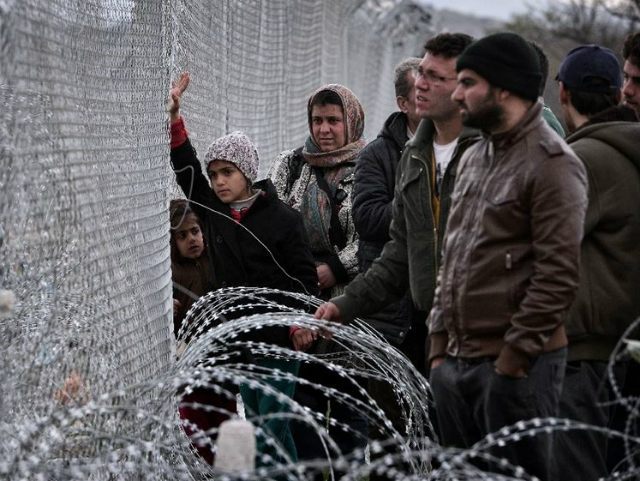Not a single migrant has entered Macedonia for the past two days, police said Wednesday, but denied that the country had closed its border with Greece entirely.
Thousands of migrants are blocked on the Greek-Macedonia border after a string of western Balkan nations closed their borders in the face of Europe’s worst migration crisis since World War II.
“The decision of the (Macedonian) authorities is to allow the entry of the number of migrants equivalent to those who can leave its territory,” a police spokeswoman told AFP.
“Over the past two or three days no migrants left Macedonia and that is the reason why no entry was registered since Monday morning,” spokeswoman Natalija Spirova said.
She denied that the former Yugoslav republic has shut its border with Greece.
“That is not true, there is no such decision for the time being and there would be no one as long as the committee in charge of the (migrants) issue does no meet.”
That committee could not meet later on Wednesday as both defence and foreign affairs minister were abroad, she explained.
The so-called Balkans route used by hundreds of thousands of people in recent months was closed at midnight after EU member Slovenia barred entry for transiting migrants allowing only those with visas.
The move was aimed at discouraging new migrants to take the long journey towards their final destinations in northern Europe. Croatia, Serbia and Macedonia immediately followed the lead.
The UN refugee agency (UNHCR) said Wednesday that as a result some 1,500 to 2,000 migrants were blocked in Serbia.
Meanwhile Croatia said a total of 408 migrants were accommodated in the country’s refugee centre in the eastern town of Slavonski Brod.
“We are currently defining (the manner of) their return to Greece,” Interior Minister Vlaho Orepic told reporters at a joint press conference with Prime Minister Tihomir Oreskovic.
He estimated that “zero” entries of migrants was a “positive result for Croatia and our neighbours.”
More than a million people have crossed the Aegean Sea into Greece since the start of 2015, many from Syria, Afghanistan and Iraq and most aiming to reach wealthy Germany, Austria and Scandinavia.

COMMENTS
Please let us know if you're having issues with commenting.